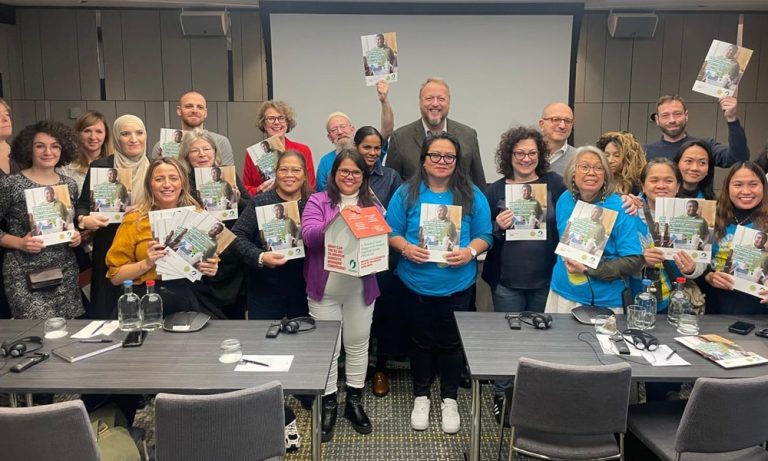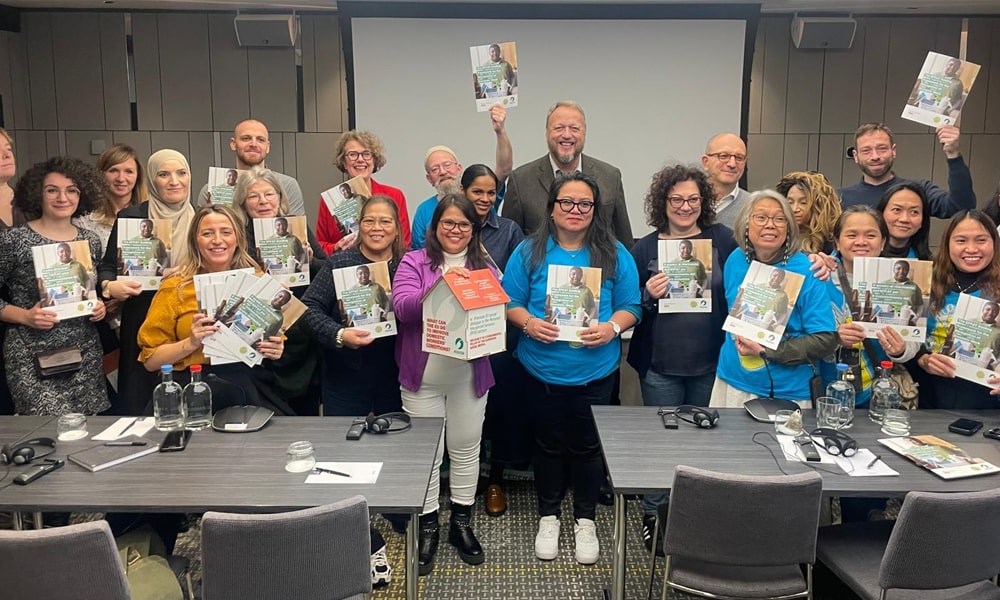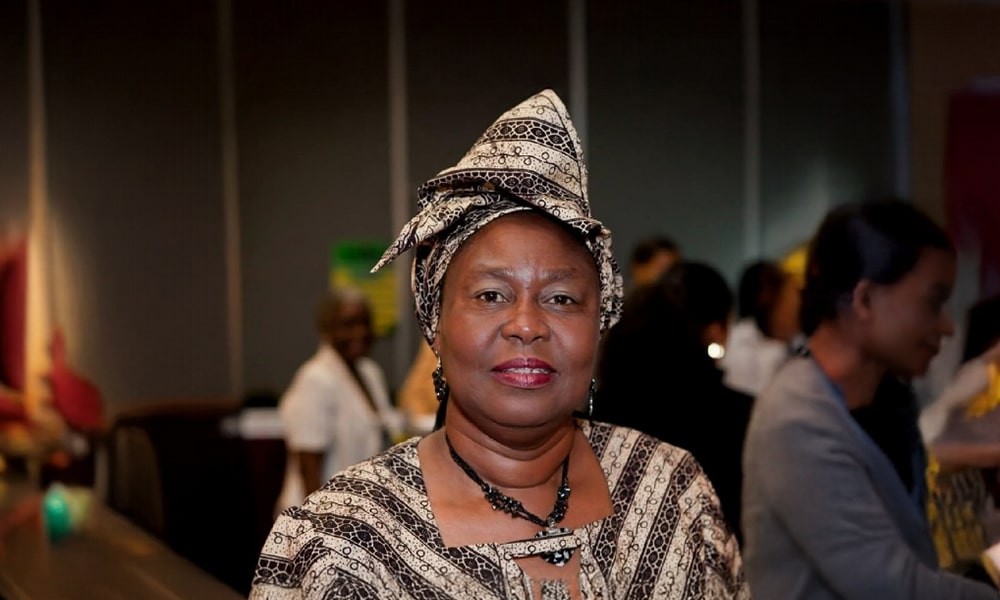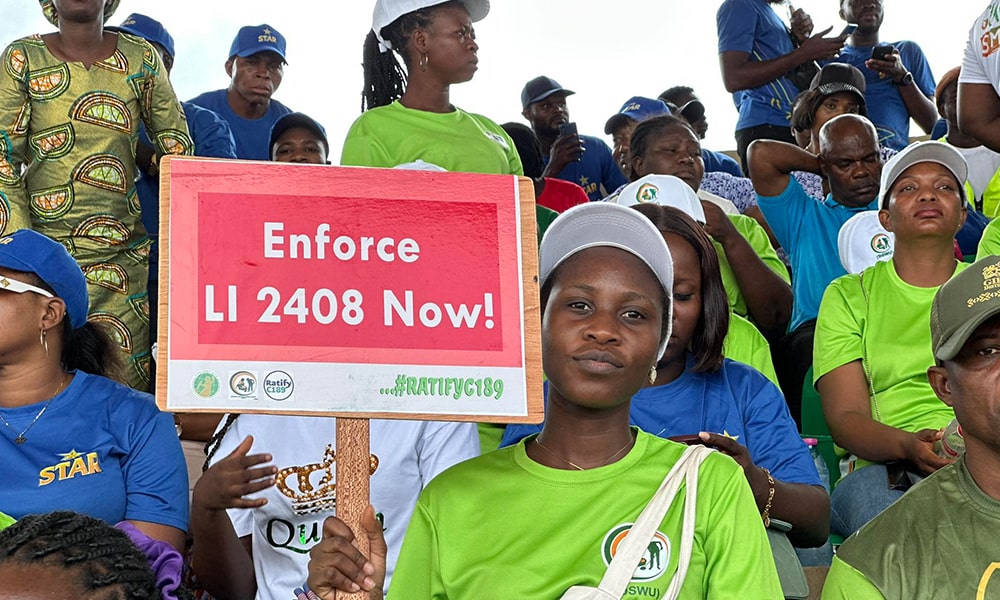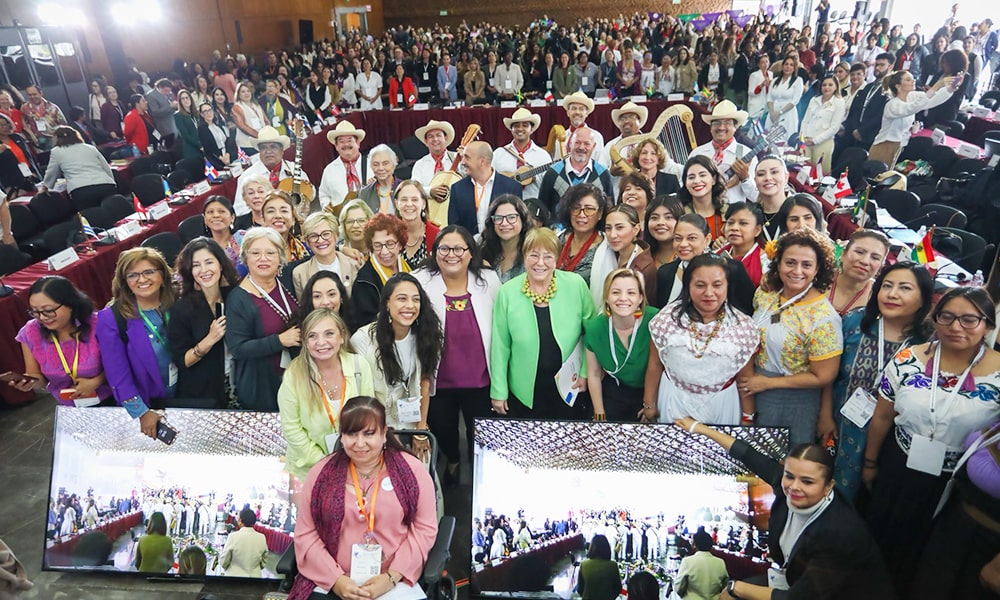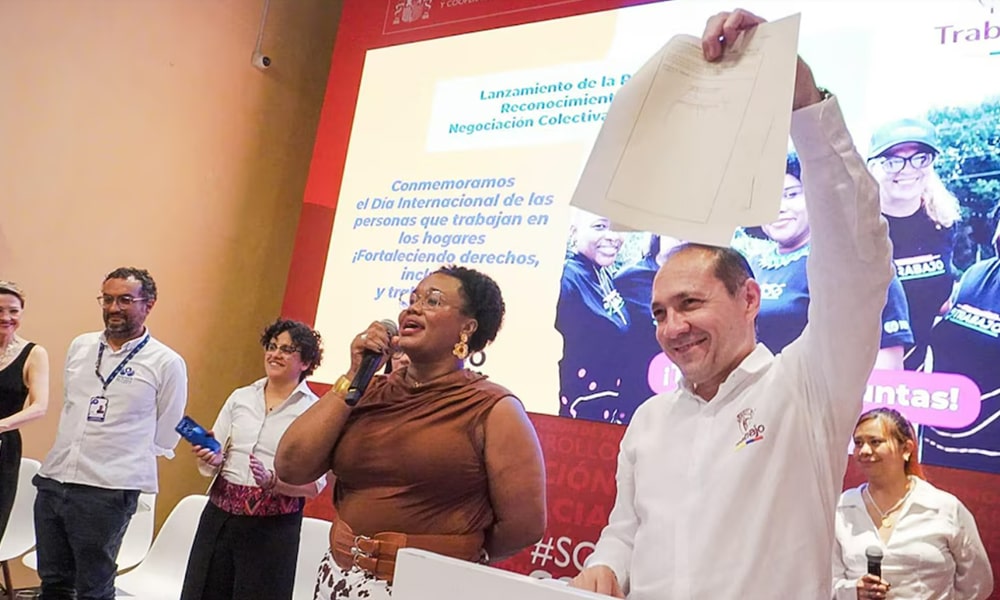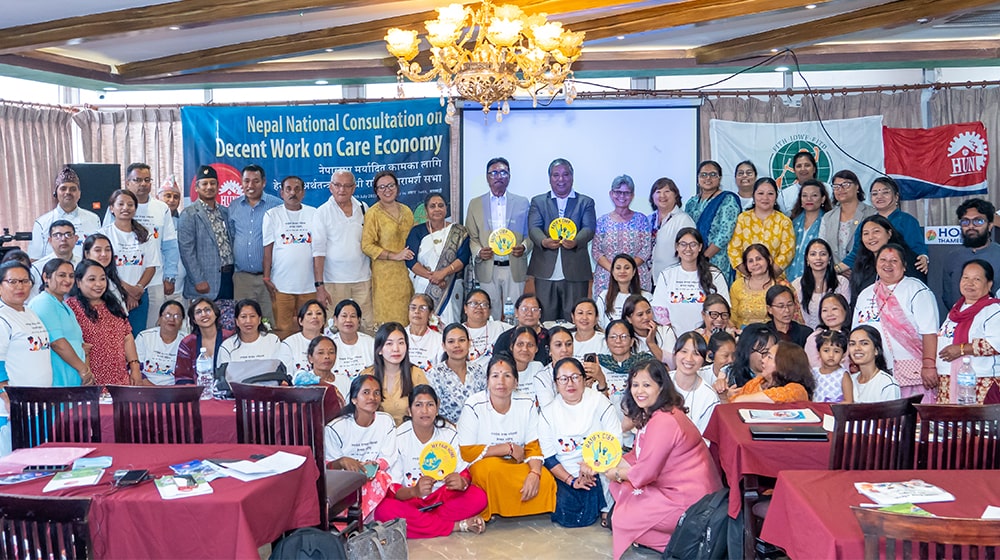Strong commitment from government officials to support Domestic Workers
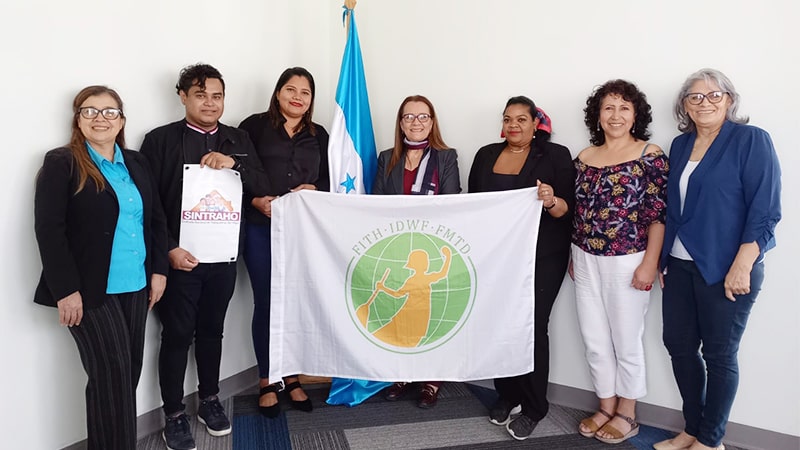
Thanks to the joint efforts of the IDWF delegation that visited Honduras in recent days and our affiliate SINTRAHO, key members of the Cabinet of Ministers and the National Congress committed to advancing the ratification of ILO Convention 189. As a result of several activities and advocacy meetings conducted by our leaders, decision-makers opened a tripartite dialogue space to promote the ratification of C189 and the adoption of a national legal framework for the protection of more than 135,000 Honduran domestic workers.
The International Domestic Workers Federation (IDWF) and its affiliate SINTRAHO (National Domestic Workers Union) have made significant progress towards the ratification of ILO Convention 189 by the Honduran state. Given the persistent poor working conditions and violation of labor rights affecting domestic workers in Honduras, our leaders conducted various awareness-raising and advocacy activities from February 16 to 20 that yielded unprecedented and very encouraging outcomes.
The Deputy Minister of Labor, Emilson Motiño, committed to convening the plenary of the CES (Economic and Social Council), a tripartite advisory body on socio-economic and labor matters, to prioritize the treatment of C189 by Congress. For her part, the Minister of Women, Doris García Paredes, also expressed her willingness to promote the ratification of the international instrument on decent work for domestic workers. Both officials announced the setting of an intersectoral table for the implementation of ILO Convention that will be advised by IDWF on good practices.
In addition, our leaders got the support of a group of congresspeople headed by Silvia Ayala (Partido Libre) and Ernesto Lezama (Partido Liberal), who has been working on a bill to regulate paid domestic work. “We must support just causes, and the dignification of domestic work is a just cause,” said congressman Jorge Zelaya (Partido Nacional de Honduras), adding his support to our sector.
The agenda of the IDWF delegates in Honduras also included training workshops on C189 and labor rights for SINTRAHO affiliates, and a national forum that was attended by the regional representative and ExCo member of the IDWF Ruth Díaz, the Program Officer for Latin America Betty Tola, SINTRAHO leaders, ILO experts, congresswoman Silvia Ayala, government officials, and the General Secretary of the Unitary Confederation of Workers of Honduras (CUTH), Joel Almendarez.
According to the ILO, there are over 135,000 paid domestic workers in Honduras, of which 87% are women, most of whom are heads of family. Despite representing 8.4% of female employment in the country and substantially contributing to the economy, these workers face extremely precarious working and living conditions. 96.3% of them do not have access to social security, being excluded from health services and the right to a pension. Only 3.5% receive the minimum wage, while the income of the remaining 96.5% barely represents half of the average salary of other workers. Likewise, 51.3% of these women endure exhausting working hours (over 48 hours per week).
In Honduras, domestic work is not regulated and does not have a minimum wage established by law. Even the Labor Code does not require the signing of an employment contract and allows employers to deny workers the right to vacations, holidays, and breaks, leaving working conditions at their mercy. The absence of a legal protection framework also fosters violence, harassment, and discriminatory treatment towards these women who find in domestic work the only gateway to the labor market but who often end up trapped in situations that perpetuate poverty and vulnerability for them and their families.
Honduras has not ratified ILO Convention 189 (adopted in June 2011), which establishes a set of basic standards to promote decent work for domestic workers. In Latin America, the continent that leads the ranking of ratifications of C189, 18 countries have adopted this international binding instrument that requires states to equate the rights of domestic workers with those of other workers. Ratifying C189 means recognizing the social and economic value of paid domestic work and dignifying those who perform it.
“Domestic work is one of the activities that drive the economy of this country; thanks to our work, many people can develop in the labor market and academic field,” says Silma Pérez, President of SINTRAHO. Today, Xiomara Castro’s government can take out of the invisibility the women who care for society and boost the Honduran economy. Social justice for domestic workers cannot continue to wait.

